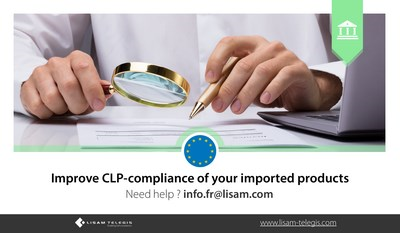Improve CLP-compliance of your imported products
Improve CLP-compliance of your imported products
jeudi 15 octobre 2020
 In September 2020, the Forum for Exchange of Information on Enforcement (the Forum) published the report of a pilot project on “cooperation with customs in enforcement of REACH restrictions and CLP labelling”.
In September 2020, the Forum for Exchange of Information on Enforcement (the Forum) published the report of a pilot project on “cooperation with customs in enforcement of REACH restrictions and CLP labelling”. 1121 articles, 158 mixtures and 10 substances were checked during this project in 2019, for compliance with a limited number of restrictions (Annex XVII entries 6, 23, 27, 43, 47, 50, 51, 63, depending on the Member State) or with some labelling and packaging obligations under CLP. The inspections took place in 16 countries and were performed either by customs or by National enforcement authorities or by both jointly.
The report itself is available on the Forum’s webpage: https://echa.europa.eu/about-us/who-we-are/enforcement-forum/forum-enforcement-projects.
The overall result of the inspections showed that approximately 23 % of the checked imported products were not compliant with REACH restrictions or with CLP.
After reading the report, however, it seems obvious that the main reasons for non-compliance under CLP, at least some of them, could easily be avoided!
Indeed, among the 107 labelling infringements, a particularly frequent (51 %) non-compliance consisted in the labelling information not being given in the proper official language!
The next most frequent non-compliance reasons were wrong or missing hazard statements, wrong or missing signal words, wrong or missing hazard pictograms, absence of CLP label, missing or wrong contact information.
Concerning the language to be used on the label, importers should be aware that ECHA published useful information in the “Communication in the supply chain” section of its website and more specifically on the page dedicated to safety data sheets https://echa.europa.eu/safety-data-sheets. Among others, a document named “Languages required for labels and safety data sheets” is available there for download and provides the mandatory languages for both SDSs and labels in all EEA Member States. It is important to note that, for most countries, English is not acceptable!
Apart from this very basic and easily applicable rule, the effort for companies to learn the classification and labelling rules under CLP is not that insurmountable. Many organisations including Lisam Telegis are proposing training sessions on SDS authoring and on the application of CLP. Contact us for further information!
